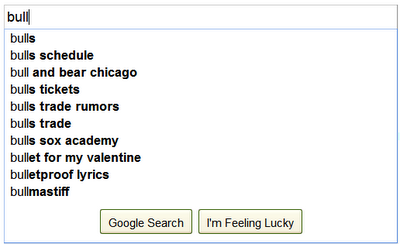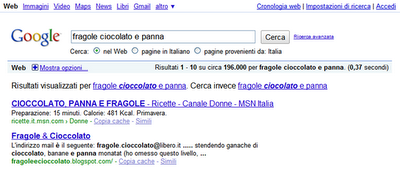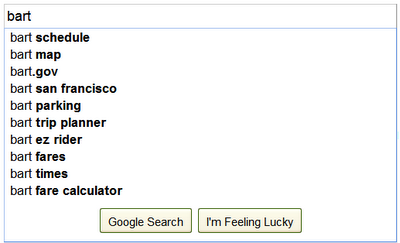Search with fewer keystrokes and better spelling
People often search for people’s names — and not just celebrities and old friends. They look for doctors, horse trainers, hang-gliding instructors... the searches are just as diverse as the personalities in your hometown. We’ve noticed that people sometimes struggle to correctly spell names, and it’s not surprising. Names can be complicated and often there are multiple common spellings. Our new technology is based on the concept that people often know something else about the person besides the approximate spelling of his name. People often include other terms such as "composer" or "lawyer sparta wisconsin" in their search query, which provides valuable context to help us narrow the range of possibilities for the spelling correction. We use these additional descriptive words to offer you better suggestions. Some examples: [matthew devin oracle], [yuri lehner stanford], [simon tung machine learning]. With these improvements you’ll start seeing more useful spell corrections for names. For now this enhancement is available in our English spelling system in the U.S. We'll be rolling out the change to other parts of the world and other languages in the coming months. Spelling auto-correction in 31 languages Did you make a typo while looking for [chocolate strawberries and cream] in Italian? The right word is so close you can taste it: Pandu Nayak, Member of Technical Staff

Spelling enhancements for names
While Suggest can help you find good queries, sometimes you can get stuck because of misspellings. That’s why for years we’ve offered corrected spellings for mistyped searches (with the “Did you mean” link). We’ve steadily improved this spelling technology over time, but recently we made some big strides in correcting misspelled names.
Another improvement we made recently to the spelling system is auto-correction. If you search for [aiprt], rather than showing you a link on your results page that says “Did you mean: airport” we’ll take you straight to the results for the corrected search. We auto-correct when we’re highly confident in our correction in order to get you the information you’re looking for that much faster. In the past week we’ve expanded auto-correction to 31 languages across over 180 domains, with more to come.
While saving you that unnecessary click, we make search that much faster.
googleblog.blogspot.com
published @ April 17, 2010
